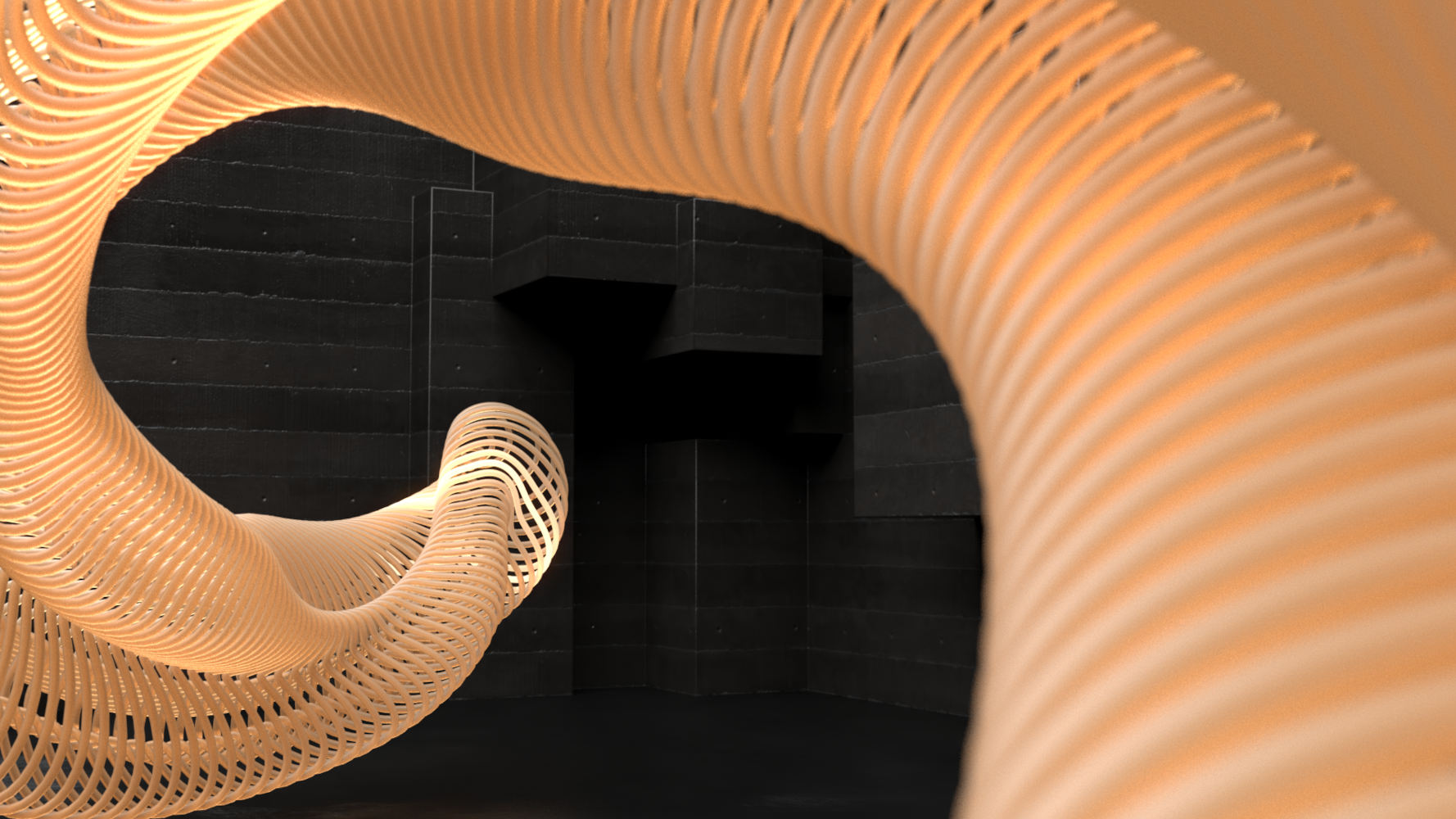The second day opens with the panel discussion Real Time. Friedrich Kirschner, professor for digital media in puppetry, discusses the interfaces of theater, performance, and animation, the Austrian artists’ collective Total Refusal presents its multilayered interventions with computer gaming, and the Vienna-based artist duo DEPART introduces its latest VR installation, which was awarded an Honorary Mention in the Computer Animation category.
Friedrich Kirschner
Real Time – All That Was Old Is New Again
As theater is developing its virtual stages, the relationship between artists, collectives, and audiences is set to be renegotiated yet again. The talk will discuss some of the systemic design questions in multiplayer environments if you do not design them for video games, but for participatory theatrical experiences, and what role physical space and bodily presence might play in them.
Leonhard Lass, Gregor Ladenhauf
Real Time – DEPART: Virtual Gardening in “The Entropy Gardens”
What is the “nature” of the post-digital reality, and how can we construct a garden from it? Drawing on and investigating humanity’s maybe most archetypical art (garden-making), we challenge its myths, aesthetics and modes of perception by combining poetry and generative coding to construct a spellbinding and surreal utopian place. In the form of an open-ended simulation, we construct a hermetic, virtual garden as a poetic ecosystem—a psychic landscape that is foremost a complex audiovisual experience. It admits the visitor into a place that is equally challenging and contemplative (and at times a little weird). It sacrifices faithful realism in order to embrace the digital condition with its glitches, malleability, and potential uncanniness. The whole environment is in constant flux, ceaselessly negotiating its rules and generating narrative structures. There is also a strong poetic element in the form of haiku and other poetry, which is integrated both through voice and graphic elements.
Leonhard Müllner & Michael Stumpf
Real Time – THE HYPERREALISTIC MACHINIMA MACHINE. Challenging Commercial Video Game Aesthetics & Narratives
The majority of contemporary mainstream games employ repetitive and militaristic gameplay loops, telling the same reactionary tropes. Thus, all too often, the hyperrealistic and overwhelming digital worlds function as hegemonial reaffirmation machines and fail to fulfill this interactive medium’s potential to challenge the values of their players. One can determine that hyperrealism, which shapes the aesthetics of many mainstream contemporary video games, works a particular visual magic, the effect of which sometimes exceeds that of the real physical world. To an extent, the artistic and cinematic fascination with the medium can be explained as parasitic use of this “muscle power” of the video game industry. In parallel with the creation of a tension between content and medium, the way filmmakers exploit games’ narrative sand pits forms the central challenge of the artistic approach. To what degree can games’ visual magic be pierced or broken with the help of machinimas or art appropriations?
Johannes Pfeifer
Real Time – Narrative Design and Story Integration in Might & Magic: Heroes 7 and Tropico 6
This talk will provide an overview of how we managed to bring the story to life in Might & Magic: Heroes 7 and Tropico 6, dealing with specific challenges, requirements, production limitations and expectations on an established franchise and its storytelling DNA. The story integration process will be broken down in the different stages of the production: working together with external partners, publishers, and writers as well as the development of our set of narration tools, which evolved from simple text boxes over scripted events to full fletched cinematics which we used for different storytelling purposes. I will show the departments, steps, and tools involved and share some insights on the various stages of internal and external collaboration as well as focus on some specific challenges, failures, and learnings.
Biographies
Leonhard Lass (* 1978, visual artist, AT) and Gregor Ladenhauf (* 1978, sound artist, AT) both live and work in Vienna, where they steadily advance their shared vision of multimedia poetry. One of the main goals of DEPART is the conception and realization of predominantly surreal immersions. Over the course of their long-lasting collaboration, both […]
https://www.depart.at/
Friedrich Kirschner (DE) is a theater director and software developer. He uses game structures and technology for participatory performances and interactive installations. He is currently a professor for digital media at the University of Performing Arts Ernst Busch in Berlin, where he is heading the master’s program Spiel und Objekt.
Leonhard Müllner & Michael Stumpf: The artist collective and pseudo-Marxist media guerrilla Total Refusal (Leonhard Müllner (AT), Michael Stumpf (AT), and Robin Klengel (AT)) intervenes in current video games and writes papers about games and politics. Since 2018 it has been awarded 15 prizes like the Loop Discovery Award, the Contemporary Visual Arts Award of Styria Province, and the Vimeo […] http://www.leonhardmuellner.at/total-refusal/
Johannes Pfeifer: After finishing his Media Technology and Design and Digital Arts studies in Hagenberg, Johannes Pfeifer (DE) worked on several AA PC and console games, like Tropico 6 and Might & Magic: Heroes 7, at the German developer Limbic Entertainment. As part of the content design team, he primarily worked on Level Design, Lighting, Cut-Scenes, managing […]
https://lightword-productions.de/


